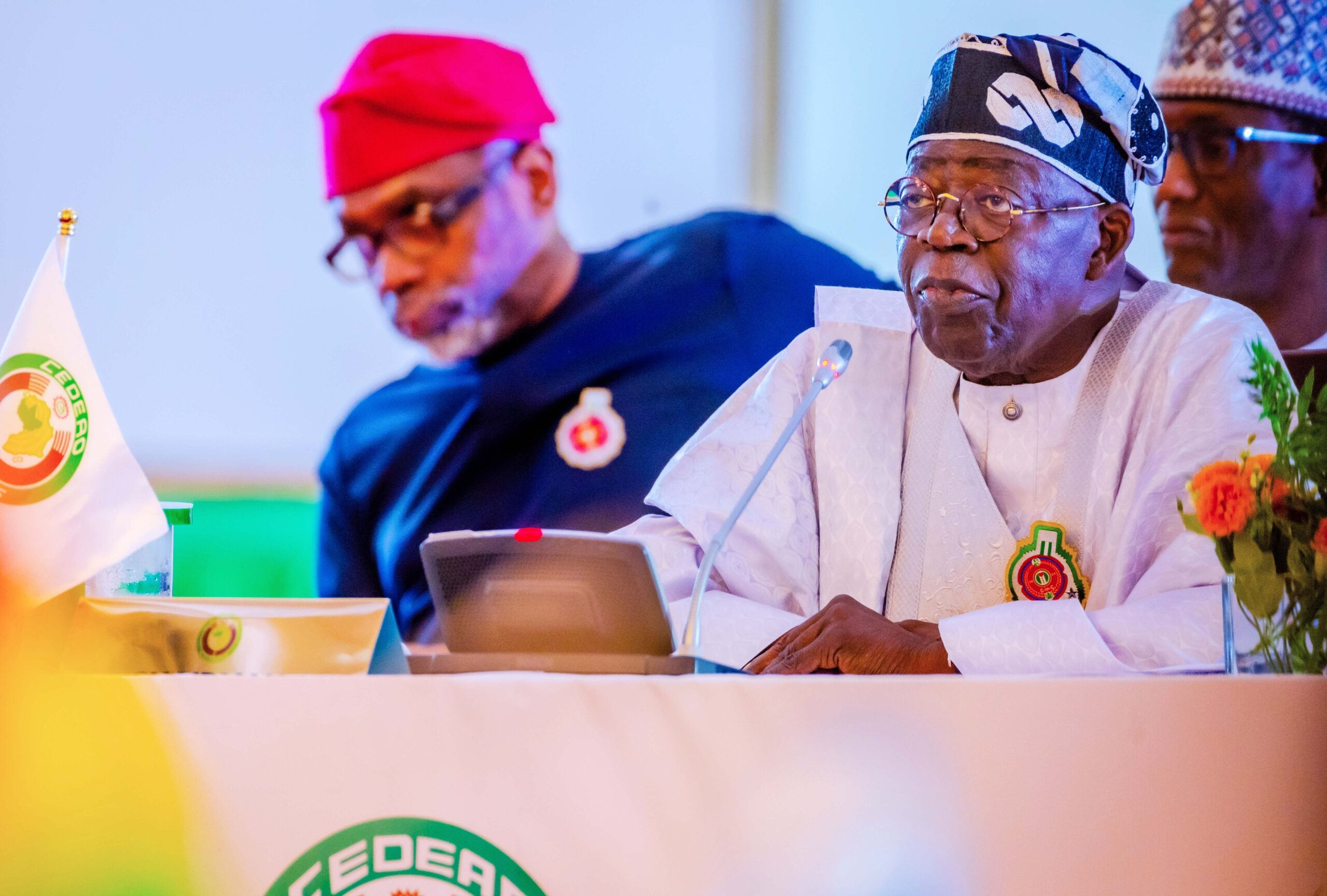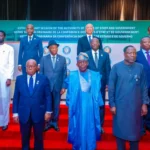At the end of the extraordinary session of the Heads of State and Government of the Economic Community of West African States (ECOWAS), which took place on Saturday, February 24, 2024, the regional body decided to lift the sanctions imposed on the military rulers of Niger, Mali and Burkina Faso, for overthrowing the democratic and constitutional governments of their countries.ECOWAS’ lift of sanctions must lead to return of democratic rule
Announcing this measure, the President of the ECOWAS Commission, Dr Omar Touray, said the decision to lift the sanctions was based on the need to maintain regional unity and security. He also said the authority took note of the period of Lent and the month of Ramadan and the impact on citizens. He also said the authority considered pleas received from prominent leaders and statesmen like General Yakubu Gowon.
Nigeria’s President Bola Ahmed Tinubu, who is the current chairman of ECOWAS, remarked that the regional body “Must re-examine our current approach to the quest for constitutional order in our member states,’’ urging the three countries that exited ECOWAS to rescind their decision and “not perceive our organization as the enemy.’’
The sanctions were imposed in August last year by the ECOWAS regional body in reaction to the coup in Niger, which ousted the president, Mohamed Bazoum.
ECOWAS’ lift of sanctions must lead to return of democratic rule
West Africa not producing enough palm oil to meet its needs – ECOWAS official
The news of this development was greeted with positive enthusiasm right across the West African sub-region and beyond. The Northern Senators Forum, which had opposed the sanctions on account of the resultant economic hardship on seven northern states bordering the Republic of Niger, hailed the move. Its spokesman, Senator Kawu Sumaila, in a statement, said; “We are particularly grateful that ECOWAS leaders have considered our pleas to restore electricity, open borders and lift sanctions on Niger Republic. These measures will not only have crucial humanitarian implications but will also foster regional integration, trade and cooperation.’’
Although no official statements have so far come from any of the three countries, there were wild celebrations from citizens who saw it as a welcome relief from the months of hardship experienced under the sanctions.
On a significant note, the expectation is that the lifting of sanctions will bring to an end the dangerous impasse that has existed between ECOWAS and the military juntas of the countries. As the impasse lasted, we have seen these governments take steps that tended to destabilize the cohesion that had painstakingly been developed within the sub-region over the years with the coming of ECOWAS in 1975.
First, they overthrew the democratic governments of their countries, suspending civil liberties of the citizens in the process. Then they followed up by entering into military alliance with extra-continental powers for clearly opportunistic reasons in order to shore up their stay in power, knowing that they faced legitimacy issues from their people. The dangerous dimension to this development was that it had the potential to turn the region into a theatre of military contention among the world’s superpowers.
In a further escalation of this dangerous development, the juntas formed a military alliance amongst themselves which they called Alliance of Sahel States.
Meanwhile, due to the unstable nature of the juntas, the security situation in the countries has continued to deteriorate with the terrorists and insurgent groups taking over territories and threatening the sub-region. With the decision of the juntas to withdraw their countries from ECOWAS, it signalled to the regional bloc that something had to be done to rein in the errant military rulers before they did further damage to the sub-region.
With the lifting of sanctions now, it is time for the juntas to come to their senses and accept the olive branch from ECOWAS. It is an offer that should begin the process of restoration of normalcy in these countries. And the military leaders should understand that the gesture by ECOWAS means that they should cooperate fully with the regional bloc in returning their countries to democratic order with the release of civilian leaders they overthrew and subsequently detained. They should also submit and commit to implementing a comprehensive transition to civil rule programme, which should carry all shades of opinion and strata of society along.
For ECOWAS, there should be no let-up on diplomatic engagements with the juntas on the matter of restoring the democratic order in those countries. Now that the process of bringing them back to the ECOWAS fold has commenced, the process should only be completed with the return of democratic order in those countries.

 Join Daily Trust WhatsApp Community For Quick Access To News and Happenings Around You.
Join Daily Trust WhatsApp Community For Quick Access To News and Happenings Around You.

